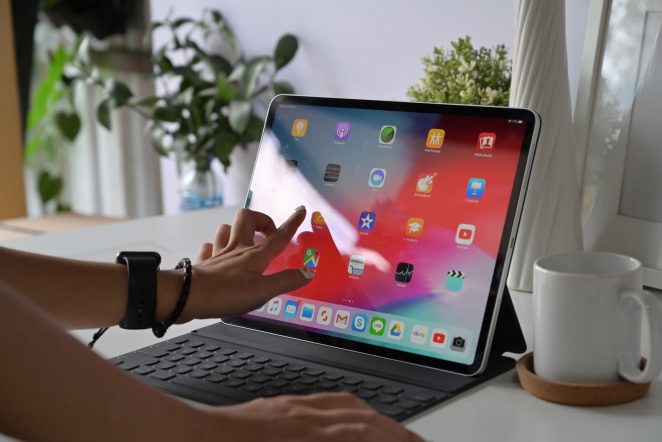By: Catherine Cooley, CHWC
Today, there is more evidence than ever before to support the idea that healthy, happy employees are more productive, engaged and satisfied at work. According to an analysis conducted by Priority Health, 88 percent of employees who engaged in wellness related activities at work felt more positive about their work culture. Knowledge of this has prompted more employers to start, or expand, workplace wellness programs to help their employees thrive, both in and out of the office.
Whether or not your employer has a wellness program, you can maximize your time spent at the office by adopting some simple self-care habits that will result in long-term gains to your health.
1. Move more
The average American spends nearly eight hours a day in sedentary behaviors, such as sitting, according to a study published in the American Journal of Epidemiology. Since the workplace is usually where we have our most prolonged periods of sitting, it is a good place to start moving more. Make a commitment to incorporate frequent movement into your schedule throughout the workday. This can help tone muscles, improve posture, increase blood flow, and ramp up metabolism to burn extra calories.

Here are subtle ways to sneak more movement into your workday:
- Set movement reminders on your phone, computer or by using an app such as Stand Up! or Move.
- Take the stairs to another floor to refill your water bottle or use the restroom — simply taking the stairs multiple times during the the day is equivalent to using the step machine at the gym.
- Wear a pedometer or activity tracker and set a work-day steps goal.
- Stand up, pace, or march in place while talking on the phone.
2. Do a water challenge
Increasing your water intake will lead to wins when it comes to your health. The need to refill your water bottle or use the restroom will also help further contribute to step one of more movement at the office. Benefits of drinking enough water include increased energy, weight loss, aided digestion and even improved mood and cognitive function. When you make a conscious effort to be mindful of drinking more water during the day, you will be surprised by how well you do. Here are a few tips to help get started:
- Keep a water bottle or cup on your desk during the day.
- Flavor your water. There are many tips and tricks out there to turn plain H2O into delicious and refreshing flavored water. For inspiration, check out these flavored water tips and ideas.
- Set a personal goal for water intake. To calculate how much water you should drink a day, simply take your body weight and divide by two. For example, if you weight 150 lbs that would equal 75 oz of water per day.
- Track water intake. This will keep you conscious how much water you are drinking and help hold yourself accountable. Check out these water tracking apps.
- Get your coworkers in on the challenge for extra support and accountability.
3. Send “in-person” emails

Rather than sending an email, try delivering the message or asking your question in person. Not only will this be a way to get extra movement in, but will go a long way in enhancing your relationships, leading to a more fulfilling work life. It’s also a great way to get some screen-free time away from your computer while still being productive.
4. Take in natural sunlight
Exposure to natural sunlight during the workday can have significant benefits to our health and well-being. The most powerful of which is the role it plays in helping to regulate our circadian rhythm, also known as our body’s internal clock or sleep/wake cycle. According to research published in the journal SLEEP, there is a strong relationship between workplace daylight exposure and office worker’s overall sleep quality.
Even if your current workspace is not by a window, taking steps to help regulate your body’s internal clock may lead to better sleep, increased energy and productivity at work.
Ways to keep your sleep cycle on track:
- Wake up at the same time each morning. As tempting as it is to sleep in on the weekends, doing so can throw off your body’s internal clock during the week. Sticking to a consistent wake up time each day plays a huge role in keeping your circadian rhythm in check.
- Take a daytime walk outside for an energy boost. This may be especially helpful during the hours between 1 and 3 p.m., when most people tend to feel a post-lunch or afternoon crash.
- Unplug at night. Artificial blue light, such as on your phone or laptop, can confuse your brain into thinking it’s still daytime. It’s recommended to unplug from tech devices at least two to three hours before bed.
5. Check computer monitor height and distance
Vision strain is common for employees who spend most of their day in front of a computer screen. Strain on your eyes can occur from looking at the monitor too long or having your monitor set at an incorrect angle or distance. Luckily, there are simple things you can do to help protect your eyes. Here’s how to help reduce visual strain at work:

- Keep the top of your monitor at the height of your eyes or below. It is much easier for our eyes to be looking downward instead of upward. To test this, try looking up at the ceiling for 30 seconds. Next, look down at your keyboard for the same time. You will notice how much easier it is for our eyes to be looking downward. If you have a stand up desk, that may mean having to adjust the monitor depending on whether you’re in a standing or sitting position.
- Set your monitor at an arm’s length away as a good starting point. Depending on the size of your monitor it may need to be further back.
- Go screen-free when possible. It’s often unavoidable to forgo the screen throughout the day but it’s important to give your eyes a break. Go for a walk, print off a document that needs reviewing, or have a laptop-free meeting.
You don’t need to conquer all these tips at once. Choose one of the above to try this week. Set a goal and commit to it by writing it down on a sticky note or setting a reminder on your calendar. With consistency, the practices you commit to will begin to feel like second nature, and will result in long-term gains for your health, energy and productivity — both in and out of work.
About the author: Becky Moorehead, LMSW, is a Clinical Program Specialist in the Behavioral Health Department and certified health and wellness coach at Priority Health. She leads all operations and oversight of the myStrength program. Priority Health’s digital station supporting the emotional health of our members. Becky also leads and supports various clinical initiatives within the organization to promote access to mental health services. Her clinical expertise and passion promote mental health awareness and access while stomping out the stigma associated with seeking essential healthcare.


